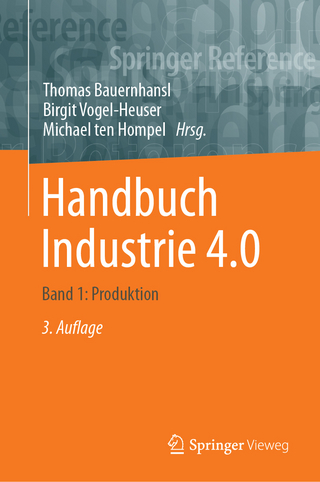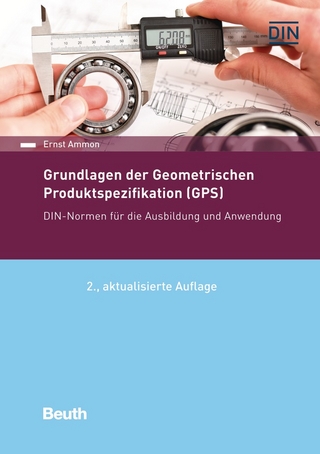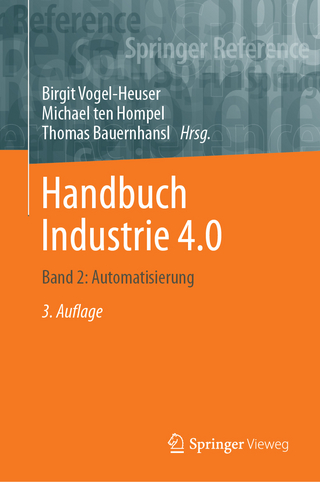
Computer-aided Tolerancing
Chapman and Hall (Verlag)
978-0-412-72740-5 (ISBN)
Theory and practice of tolerances are very important for designing and manufacturing engineering artifacts on a rational basis. Tolerance specifies a degree of "discrepancy" between an idealized object and its physical realization. Such discrepancy inevitably comes into our product realization processes because of practical cost consideration or our inability to fully control manufacturing processes. Major product and production characteristics which are affected by tolerances are product quality and cost. For achieving high precision machines tight tolerance specification is necessary, but this will normally increase product cost. In order to optimally compromise the conflicting requirements of quality and cost, it is essential to take into account of the total product life cycle throughout product planning, design, manufacturing, maintenance and recycling. For example, in order to construct durable products under severe working conditions, low sensitivity of product functionality with respect to tolerances is required. In future, re-use of components or parts will become important, and tolerance synthesis with respect to this aspect will be an interesting future research topics.
One Functional tolerancing.- 1 A declarative information model for functional requirements.- 2 Constrained dimensioning and tolerancing assistance for mechanism.- 3 Univocal expression of functional and geometric tolerances for Design, Manufacturing and Inspection.- 4 A tolerancing tool based on kinematic analogies.- 5 Modelling spatial dimensional chains for CAD/CAM applications.- Two Tolerance modelling.- 6 Toleranced feature modelling by constraint of degree of freedom for assignment of tolerance.- 7 Quality features in CAD- and CAPP- systems.- Three Modelling geometrical error.- 8 Geometrical behaviour laws for computer-aided tolerancing.- 9 Configuration space based analysis of position uncertainties of parts in an assembly.- 10 Physically based modelling for evaluating shape variations.- Four Statistical tolerancing.- 11 Towards an ISO standard for statistical tolerancing.- 12 Statistical process control using vectorial tolerancing.- 13 Probabilistic analysis of geometric tolerances.- 14 Taguchi rules in some Japanese standardizations of tolerancing.- Five Tolerance system.- 15 Tolerance optimization using genetic algorithms: benchmarking with manual analysis.- 16 Optimal tolerance synthesis by genetic algorithm under the machining and assembling constraints.- 17 Holistic approach and advanced techniques & tools for tolerance analysis & synthesis.- Six Computational metrology.- 18 Data processing method for geometrical forms with form deviations in Coordinate Metrology.- 19 Algorithmic circularity measurement for fringe analysis and sub-micron position sensing.- 20 Inspection method for geometrical tolerances using coordinate measuring machine.- 21 A soft gaging approach for complex cases including datum shift analysis of geometrical tolerances.- 22 An evaluationof geometrical errors by segmentation with fitting form features.- Author index.- Keyword index.
| Erscheint lt. Verlag | 31.7.1996 |
|---|---|
| Zusatzinfo | VIII, 342 p. |
| Verlagsort | London |
| Sprache | englisch |
| Maße | 156 x 234 mm |
| Themenwelt | Informatik ► Weitere Themen ► CAD-Programme |
| Technik ► Maschinenbau | |
| ISBN-10 | 0-412-72740-4 / 0412727404 |
| ISBN-13 | 978-0-412-72740-5 / 9780412727405 |
| Zustand | Neuware |
| Informationen gemäß Produktsicherheitsverordnung (GPSR) | |
| Haben Sie eine Frage zum Produkt? |
aus dem Bereich


